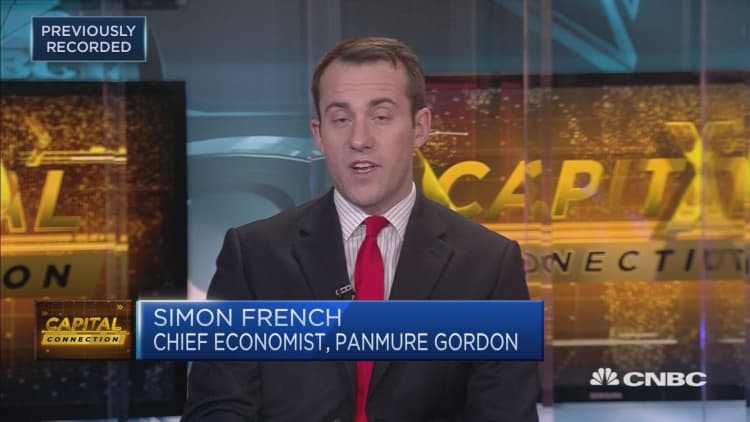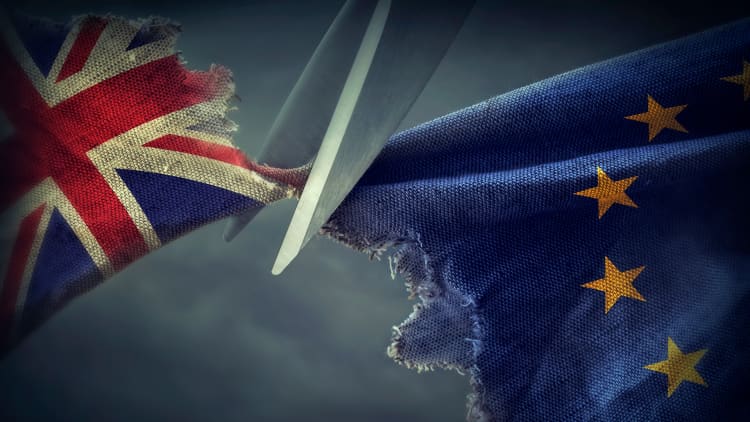
Sterling is set for some major volatility next week as U.K. lawmakers vote on the country's planned departure from the European Union.
The British Pound could jump as much as 4 percent against all the other major currencies on Tuesday, according to a strategist at J.P. Morgan Asset Management said. The caveat for this upside is the unlikely approval of the Prime Minister Theresa May's Withdrawal Agreement — the much-maligned 585-page document that outlines how the U.K. should leave the Union.
"The pound is down about 4 percent from that level (when the prime minister came back from Brussels with an agreement) so we will at least recover that on the deal passing," Karen Ward, a chief market strategist at J.P. Morgan Asset Management, said Wednesday at an event in London.
But sterling could also lose more than 2 percent against the U.S. dollar if the deal is rejected, according to strategists at Nomura.
The British pound has seen some serious weakness since the country voted to leave the European Union in June of 2016. It initially dropped to a 31-year low immediately after the vote and throughout last year the currency lost 6 percent of its value against the greenback. On Friday morning it was trading at around $1.2727.
Jane Foley, the head of foreign exchange strategy at Rabobank, told CNBC via email that if the vote passed next week she would expect sterling-dollar to trade back in the 1.30 area. "On a failure I would expect to see 1.25," she said.

Lawmakers are getting ready to vote on the Withdrawal Agreement on Tuesday evening, after the prime minister delayed the initial vote in December on concerns that it wouldn't get approval.
There is widespread division among parliamentarians and across different parties, between those who think the U.K. shouldn't leave the EU, those who think the U.K. should leave the EU but not with the current deal, and those who believe Britain should exit with the current plan.
A second vote?
Not much has changed since December, leading many analysts to believe that lawmakers won't green light the deal. However, the risk that the U.K. leaves the EU without a deal or doesn't deliver on the referendum result has also led many to think that Parliament will eventually approve the plans in a second vote.
According to Nomura, there is a 22 percent chance the deal will be approved next week, but a 44 percent chance that it will pass in a second vote. J.P. Morgan Asset Management said Wednesday that its baseline scenario is that the deal will eventually pass.

"An initial deal and some resolution in the uncertainty, or at least the prospect, of a no-deal being removed then I think that changes the outlook for the Bank of England for this year, assuming the global economy doesn't fall out of bed," Ward noted.
"And at that point you will start seeing further increases in the sterling," she added, projecting that the Bank of England could raise rates by 50 basis points by the end of 2019. This could give the pound another boost of around 5 percent, she also said.
Second referendum?
If the deal is not approved next week, it also raises the possibility that the U.K. government might choose to put the agreement to a public vote to overcome the deadlock in Parliament.
In this situation, the currency could jump more than 5 percent from current levels, analysts at BNP Paribas said Thursday.
"Enough downside is priced in for now, in our view. The FX (foreign exchange) market appears to have priced in enough political and economic uncertainty," the bank said in a note, according to Reuters.


